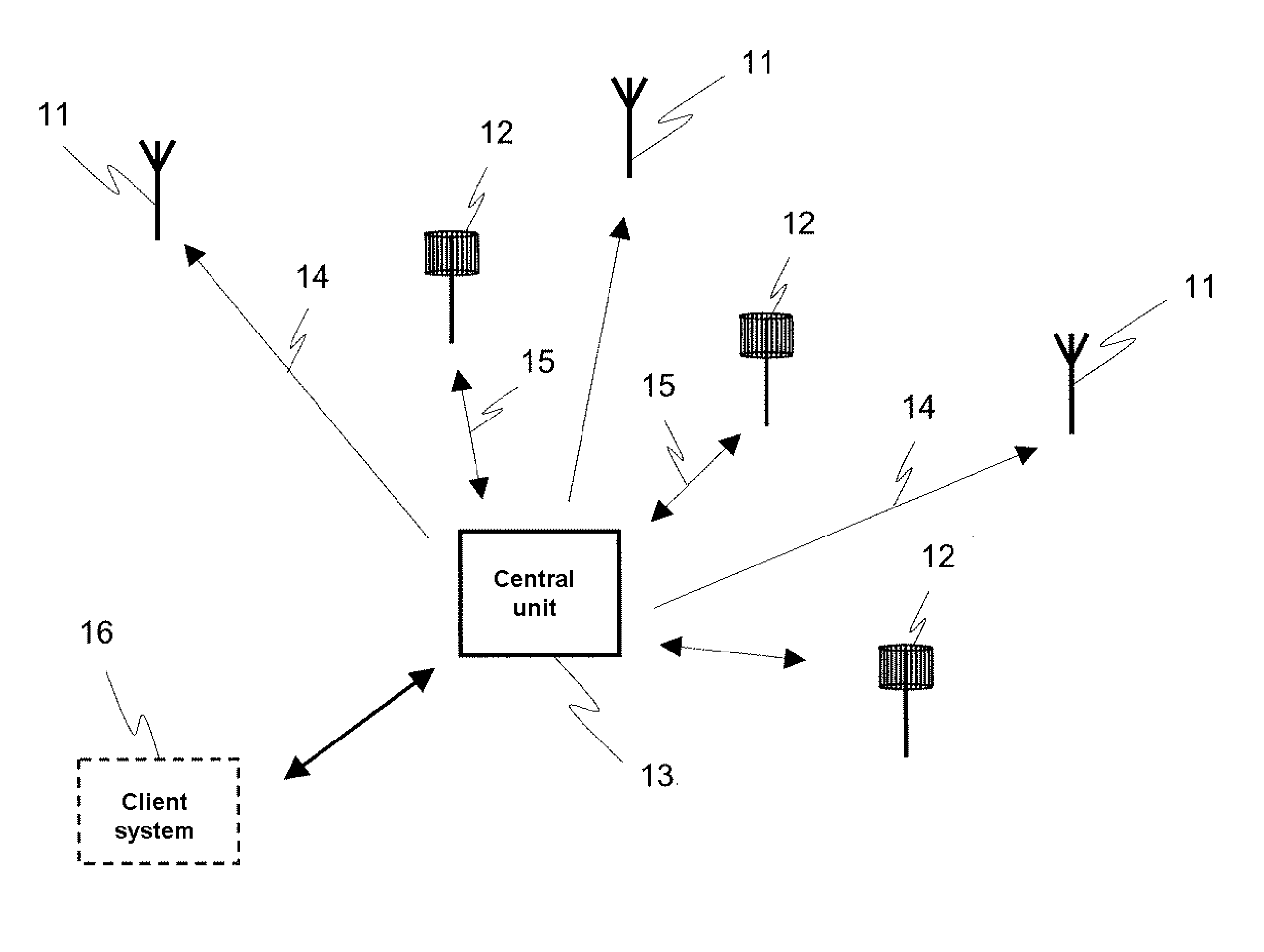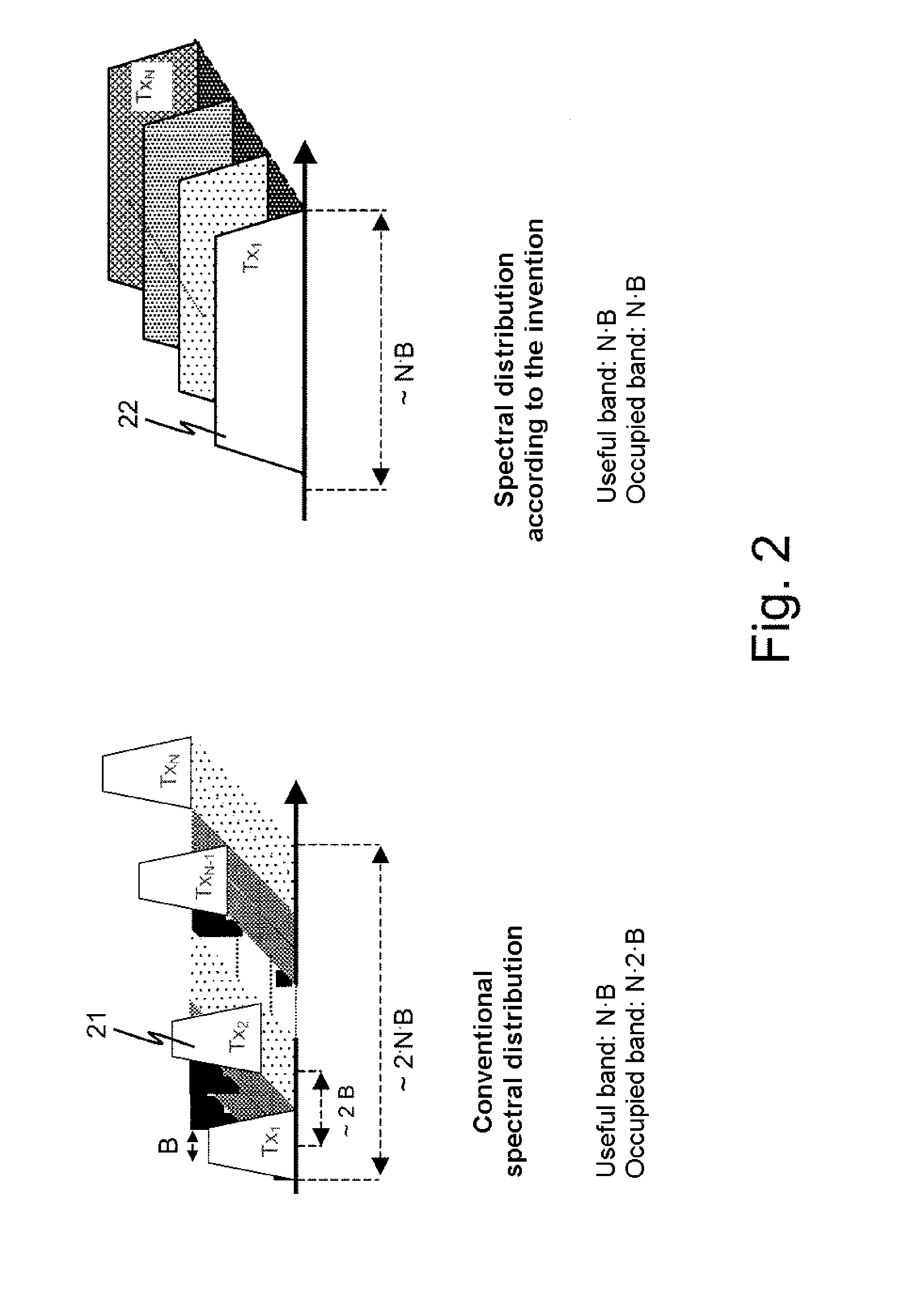Optimized Multistatic Surveillance System
a multi-static surveillance and monitoring system technology, applied in the field of radar surveillance, can solve the problems of insufficient resolution requirements for detection systems, inability to meet the resolution requirements of detection systems, and installation comprising communication means using wire links, and by its nature, will be less easy to deploy over a wide monitoring area
- Summary
- Abstract
- Description
- Claims
- Application Information
AI Technical Summary
Benefits of technology
Problems solved by technology
Method used
Image
Examples
Embodiment Construction
[0032]The issue here is the problem of primary surveillance, that is to say surveillance not requiring cooperation on the part of the objects that it is sought to detect, these objects being able to be land, naval, air or space objects.
[0033]As illustrated in FIG. 1, the solution provided by the architecture according to the invention is based on the use of a network of omnidirectional transmitters 11 and receivers 12, the transmitters and the receivers being configured so as to be linked with one another and with a command and control unit 13 which may itself consist of various elements spread out or located in one and the same location as illustrated in FIG. 1. This command and control unit mainly configures the various elements of the system, transmitters and receivers and uses the information produced by the receivers, the information produced by a receiver relating mainly to the features of the objects detected by this receiver.
[0034]If necessary, the information produced may a...
PUM
 Login to View More
Login to View More Abstract
Description
Claims
Application Information
 Login to View More
Login to View More - R&D
- Intellectual Property
- Life Sciences
- Materials
- Tech Scout
- Unparalleled Data Quality
- Higher Quality Content
- 60% Fewer Hallucinations
Browse by: Latest US Patents, China's latest patents, Technical Efficacy Thesaurus, Application Domain, Technology Topic, Popular Technical Reports.
© 2025 PatSnap. All rights reserved.Legal|Privacy policy|Modern Slavery Act Transparency Statement|Sitemap|About US| Contact US: help@patsnap.com



